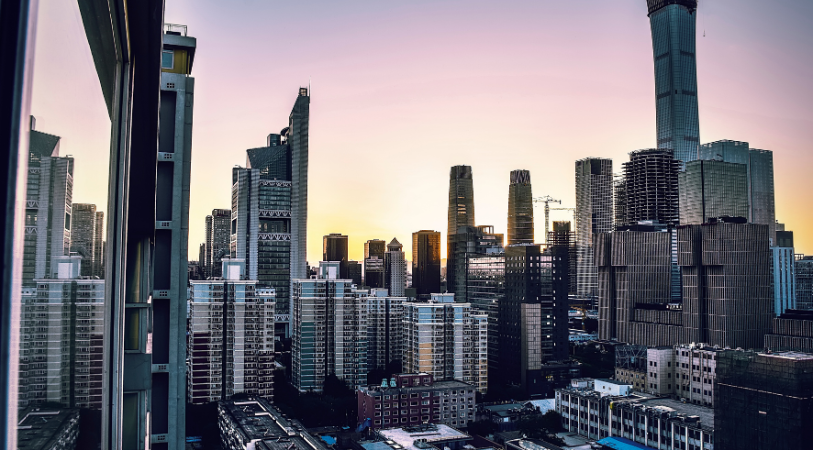In an increasingly interconnected world, immigration plays a pivotal role in shaping the cultural, social, and economic landscape of nations. It has become a driving force in the development of multicultural societies, where diversity is celebrated as a source of strength rather than a source of division. This article explores the multifaceted role of immigration in building multicultural societies, highlighting the benefits it brings and the challenges it poses.
Immigration as a Catalyst for Cultural Diversity
Cultural Enrichment: Immigration infuses societies with a rich tapestry of cultures, traditions, languages, and cuisines. This diversity is a source of cultural enrichment, allowing people to experience and learn from different ways of life. It fosters tolerance, broadens perspectives, and encourages a more open-minded society.
Cultural Exchange: Immigrants often become cultural ambassadors, sharing their customs, art, music, and cuisine with their host communities. This exchange of cultures enriches the artistic and creative expressions of society, leading to a vibrant cultural scene.
Cultural Fusion: Multicultural societies are often characterized by cultural fusion, where elements from different cultures blend to create something entirely new and unique. This fusion can be seen in music genres like jazz, which emerged from African and European influences, or in culinary innovations that combine diverse ingredients and techniques.
Economic Contributions of Immigrants
Workforce Diversity: Immigrants bring a diverse set of skills and expertise to their host countries. This diversity contributes to a more dynamic and innovative workforce, fostering economic growth and competitiveness. Highly skilled immigrants, in particular, often make significant contributions to research, technology, and entrepreneurship.
Entrepreneurship: Immigrants often play a prominent role in entrepreneurial ventures. They start businesses, create jobs, and contribute to local economies. In some cases, immigrant entrepreneurs have founded industry-leading companies, driving innovation and economic development.
Consumer Spending: Immigrants are consumers, and their spending contributes to the local economy. As they purchase goods and services, they stimulate demand, supporting local businesses and driving economic growth.
Social Cohesion and Challenges
Social Cohesion: While immigration brings cultural diversity, it can also foster social cohesion. When managed effectively, multicultural societies emphasize shared values of tolerance, respect, and equality. Such societies can serve as models of unity in diversity, demonstrating that people from different backgrounds can live harmoniously together.
Challenges of Integration: Achieving social cohesion in multicultural societies requires addressing the challenges of immigrant integration. Language barriers, discrimination, and economic disparities can hinder the full participation of immigrants in society. Governments and communities must invest in programs that facilitate integration, such as language classes, job training, and cultural exchange initiatives.
Perceptions of Identity: In multicultural societies, individuals often grapple with questions of identity. They must navigate their cultural heritage while embracing the values and customs of their adopted country. This process can be enriching but also challenging, as individuals seek to balance multiple aspects of their identity.
Political Engagement and Representation
Political Diversity: Immigrants often bring diverse political perspectives and experiences, contributing to a more vibrant political landscape. Their engagement in politics can lead to new policy approaches and greater representation of underrepresented communities.
Advocacy for Change: Immigrant communities often advocate for social and political change. They champion issues such as immigration reform, civil rights, and social justice, leading to positive policy changes that benefit not only immigrants but society at large.
Global Perspective and Diplomacy
Diplomatic Ties: Immigration fosters diplomatic ties between countries. Diaspora communities often maintain strong connections with their countries of origin, facilitating trade, cultural exchange, and cooperation between nations.
Global Perspective: Immigrants bring a global perspective to their host countries. They offer insights into international affairs, culture, and economics, contributing to a broader understanding of the world.
Challenges and the Way Forward
Integration and Inclusion: Challenges related to immigrant integration and inclusion must be addressed proactively. Governments, communities, and institutions should invest in programs that support language acquisition, education, job training, and anti-discrimination efforts.
Policy Framework: Effective immigration policies are essential for building multicultural societies. Policies should be designed to balance economic and humanitarian considerations, ensuring that immigrants are given opportunities to contribute to their host societies.
Promoting Dialogue: Open and constructive dialogue between different cultural, ethnic, and religious groups is essential for fostering understanding and resolving conflicts. Civil society organizations and community leaders can play a crucial role in facilitating such conversations.
Education and Awareness: Promoting cultural competence and awareness is vital in multicultural societies. Educational institutions should incorporate multicultural perspectives into curricula, and media outlets should represent diverse voices and experiences.
Conclusion
Immigration is a dynamic and transformative force that shapes modern societies. It enriches culture, fuels economic growth, and promotes social cohesion when managed effectively. The challenges associated with immigration, such as integration and identity, are opportunities for societies to grow and learn from one another.
Building multicultural societies requires a commitment to diversity, inclusion, and the recognition of shared values. When individuals from different backgrounds come together to celebrate their unique cultural contributions while working toward common goals, they create vibrant and resilient communities that are models of unity in diversity. By embracing the role of immigration in building multicultural societies, we can build a more inclusive and prosperous world for all.


Leave a Reply